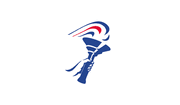
|
Outdated Template In Use! | |
| Please note that the template that you are using is outdated. This may cause issues with the template, the page and the wider Particracy Wiki! Please the current list of supported and up to date templates located here: Templates Manual of Style. If you need assistance please contact Wiki Administrator Auditorii via the in-game forums or Discord. |
| United Liberal Alliance | |
|---|---|

| |
| Leader | John Russell |
| Founded | 3253 |
| Dissolved | {{{dissolved}}} |
| Headquarters | Alliance House, Ferescia |
| Nation | Telamon |
| Ideology | liberal |
| Political Position | centre right |
| International Affiliations | International Centrist Alliance Liberal Democracy Foundation |
| Colours | 00008B |
| Website | www.ula.te |
The United Liberal Alliance (ULA), usually known simply as the Alliance, is a coalition of liberal interest groups who have come together to create a political party which can offer a viable liberal, centre right alternative for the people of Telamon. The party has always campaigned for, democracy, freedom of speech, the rule of law, human rights and small government. Its politics is essentially one of classical liberalism, although it may be more accurate to describe it as socially liberal and economically conservative. The current Alliance party is the spiritual successor the ancient and historical Telamon centre right party, the United Commonwealth Alliance (UCA) which was one of the dominant forces in Telamonese politics in the early centuries of the modern Telamonese state.
History[]
Structure[]
The United Liberal Alliance is a coalition made up of a number of different interest groups. As a result, the party maintains a federal structure, with local parties (both at constitutency and provincial level) being given significant autonomy over the management of their own affairs, the selection of their representatives and local election/campaigning strategy, within an overall national framework.
Local & Provincial[]
The Alliance has party offices in all Telamonese constituencies headed by a Chairman and local committee who are elected by local party members. Each constituency maintains a great deal of freedom in selecting its parliamentary candidate and the formation of the local election manifesto which supplements that of the national one in each constituency.
Larger party offices are maintained in the capitals of each province. The Chairmen of each constituency committee form the Regional Coordination Committees (RCCs) which are responsible for the allocation of resources to local party offices and regional election strategy, particularly in local government elections. The members of the RCCs elected a chairman from amongst their number.
National[]
At a national level, the Alliance maintains its headquarters at Alliance House in the Telamonese captial Ferescia. The party is governed nationally by a National Coordinating Council (NCC) which consists of three representatives elected from each RCC and three non RCC party members elected from each republic by the party membership. The Party Leader and his deputy also have seats on the NCC in order to represent the interests of the parliamentary party.
The NCC is chaired by the Party President who is elected by the whole national party membership. The President is there to represent the interests of the whole party and also acts as the Alliance's national figurehead and Presidential candidate.
The NCC coordinates national campaigns and allocations of resources and sets policy directions for the Alliance.
Parliamentary[]
The parliamentary party is coordinated by the National (or parliamentary) Executive Committee (NEC) which essentially consitutes a shadow cabinet. All Alliance Members of Parliament (MPs) elect the NEC Chairman who becomes the formal Party Leader, both in [Telamonese Legislature|Parliament]], and nationally. The Party Leader acts essentially as a shadow Prime Minister and appoints the other members of the NEC. Positions on the NEC correspond to government departments and members act as the Alliance party spokesmen for the relevent department. When the Alliance enters government, the corresponding spokesmen usually become government ministers in the relevent departments, although this may not always be the case. It is however customary that the Party Leader does not enter government office unless as Prime Minister.
The Alliance Party Leader and his deputy have seats on the NCC in order to represent NEC interests and views and the Party President is also an ex-officio member of the NEC in order to represent the interests of the national party as a whole.
The NEC is responsible for actually formulating Alliance Party policy, within the parameters set by the NCC, and for writing election manifestos.
Conference[]
The Alliance holds a party conference of delegates representing all various party interests and factions at least once every three years. This provides another mechanism by which activists can get involved in formulating party policy, although conference resolutions are non-binding on the party leadership. The exception to this is a motion of no confidence in the Party President which if passed forces the President to resign and an election for a new one to be immediately carried out. Whilst only a vote of no confidence by Alliance MPs can force a leadership challenge, a Party Leader would find it very difficult to survive a vote of no confidence by a party conference.
